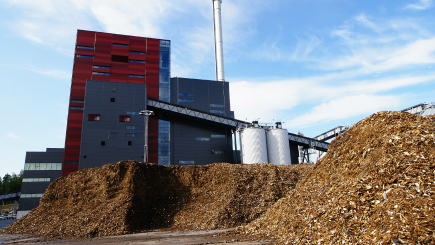
Learn about biorefinery with online courses and programs
Explore the process for converting organic waste into biofuels. Learn about biorefinery systems with online courses delivered through edX.

What is a biorefinery?
A biorefinery is a hub for harnessing the full potential of various biomass feedstocks, such as agricultural residues, forestry by-products, and organic waste, to produce an array of valuable products. The core objective of a biorefinery is to efficiently convert these renewable resources into an assortment of biofuels, biochemicals, and biomaterials, which can replace or supplement traditional fossil fuel-derived counterparts. Through a combination of biochemical, thermochemical, and mechanical processes, biorefineries break down complex organic materials into their constituent elements, allowing for the production of bioethanol, biodiesel, bioplastics, and other eco-friendly products.
By utilizing renewable feedstocks and employing environmentally friendly production methods, biorefineries contribute to mitigating greenhouse gas emissions and reducing the dependence on finite fossil fuels.1
Browse online biorefinery courses
Related Topics
Biorefinery course curriculum
Biorefinery courses can cover a wide range of topics related to the sustainable conversion of biomass into valuable products. Some of these may include:
- Biomass feedstock selection and preparation: Examines various types of biomass feedstocks, such as agricultural residues, forestry waste, algae, and dedicated energy crops.
- Biorefinery processes and technologies: Covers the various biorefinery processes and technologies used to convert biomass into valuable products.
- Product recovery and separation: Delves into the techniques and methods for recovering and separating the final products from the complex mixtures generated during biomass conversion.
- Sustainability and environmental impact: Explores the environmental, economic, and social aspects of biorefinery processes.
edX offers online courses that enable learners to study many different disciplines including biology, engineering, and much more. From accelerated boot camps to comprehensive programs that allow you to earn a bachelor’s degree or (for more advanced learners) a master’s degree, there are many different learning formats available to fit your needs. Busy professionals can even take advantage of executive education programs. Find the right course for you.
Explore biorefinery jobs
The biorefinery field has a range of roles and responsibilities. Careers in this field include:
- Bioprocess engineer: Designs and optimizes the processes used in biorefineries to convert biomass into valuable products.
- Sustainability analyst: Assesses the environmental and economic impacts of biorefinery operations.
- Research scientist: Works on innovating and improving biorefinery processes, exploring new feedstocks, and developing novel bio-based materials and chemicals.
- Process chemist: Develops and optimizes the chemical processes used in biorefineries.
- Sustainability manager: Oversees the implementation of sustainable practices and strategies.
Are you interested in a career in this field? Start building the skills you need with online courses offered through edX.
More opportunities for you to learn
We've added 500+ learning opportunities to create one of the world's most comprehensive free-to-degree online learning platforms.
What is a biorefinery? (2023). Rise. Retrieved October 13, 2023.